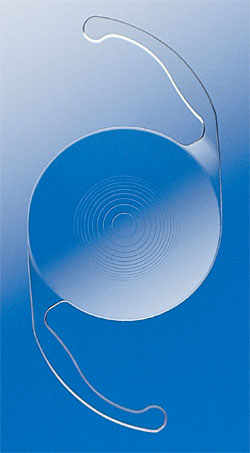
June 19, 2020
Your Cataract Questions, Answered.
Cataracts are a normal part of the aging process, but how will you know if you get them?
One word, CATARACTS, you’ve heard of them, know someone who has them, or has had them removed. In fact, over 50% of people by the age of eighty will develop cataracts. Knowing the signs of cataracts and what to do to treat them is a great way to be prepared for vision changes due to age. June is Cataract Awareness month and the perfect time to answer some of the most frequently asked questions about this leading cause of vision loss in the United States.
What is a cataract?
A cataract is the clouding of your natural lens. Your eye’s lens helps focus light so that you can see sharply and clearly. As we all age, the lens of the eye begins to buildup protein which clumps together, clouding your vision. Most cataracts develop gradually due to aging. However, cataracts can also develop rapidly and be caused from other factors such as trauma to the eye.
What are the symptoms of a cataract?
As a cataract develops, vision becomes increasingly clouded. Clouded vision makes everyday activities like reading, driving (especially at night) and seeing colors vividly more and more difficult. Some other symptoms of cataracts include dim or dull vision, sensitivity to light and glare, difficulty seeing in low light conditions and frequent changes in eyeglasses or contact lens prescriptions.
What do I do if I have a cataract?
The best way to find out if you have a cataract is by scheduling yearly comprehensive dilated eye exams with your family eye doctor. Your yearly eye exam will help detect cataracts early on and is a great way to prevent other eye conditions. When your cataract has developed your eye doctor will refer you to Wolfe Eye Clinic for a cataract evaluation. At the evaluation, we will do more advance testing and you will meet with your surgeon to discuss options in depth and potentially schedule cataract surgery.
What is an Intraocular Lens (IOL)?
In order to treat cataracts an intraocular lens (IOL) which is an artificial lens is implanted during surgery. Your surgeon removes the clouded natural lens and replaces with the new artificial lens. There are many different types of IOLs to fit your needs. Some are designed for only distance vision, where others offer near, intermediate and distance. A monofocal lens provides either distance or near vision and does not treat for an astigmatism. A toric lens provides either distance or near vision and does treat for an astigmatism. Whereas a multifocal provides both distance and near vision and treats for astigmatism.
 Wolfe Eye Clinic is excited to be able to offer a new trifocal lens that has been recently approved by the FDA. A trifocal lens is an IOL that provides not only distance vision but also near and intermediate. The PanOptix® Lens, is the first and only trifocal lens in the entire United States used for cataracts and Dr. James Davison at Wolfe Eye Clinic was the first to implant this lens in Iowa. With great outcomes, Wolfe Eye Clinic has implanted many more PanOptix® lens for the right candidates.
Wolfe Eye Clinic is excited to be able to offer a new trifocal lens that has been recently approved by the FDA. A trifocal lens is an IOL that provides not only distance vision but also near and intermediate. The PanOptix® Lens, is the first and only trifocal lens in the entire United States used for cataracts and Dr. James Davison at Wolfe Eye Clinic was the first to implant this lens in Iowa. With great outcomes, Wolfe Eye Clinic has implanted many more PanOptix® lens for the right candidates.
How is a cataract removed?
Cataract surgery is a safe and painless procedure that takes about twenty minutes to complete. The clouded lens is dissolved and replaced with an artificial lens. Your surgeon will help you determine the best replacement lens for your vision goals and lifestyle. Typically, medical insurance helps cover the cost of the standard lens. However, non-standard and upgraded lenses are an additional out-of-pocket expense.
Why should I choose Wolfe Eye Clinic for the specialized care and treatment of my cataracts?
Wolfe Eye Clinic recently celebrated 100 years of serving Iowa’s eye care needs and our surgeons continue to be Iowa’s premier cataract specialists. Performing over 330,000 cataract procedures to date, we have introduced several cataract surgery techniques to Iowa and lead the way for technological innovation. If you believe you or a loved one may have cataracts, give us a call at (800) 542-7956 to learn more about how our cataract specialists can help and what to do next.
Wolfe Eye Clinic Cataract Specialists:
Steven O. Anderson, James A. Davison, Stephen P. Fox, Steven C. Johnson, Benjamin L. Mason, Matthew P. Rauen, Peter Rhee, Louis J. Scallon, John R. Trible, Reid P. Turner, Ryan D. Vincent